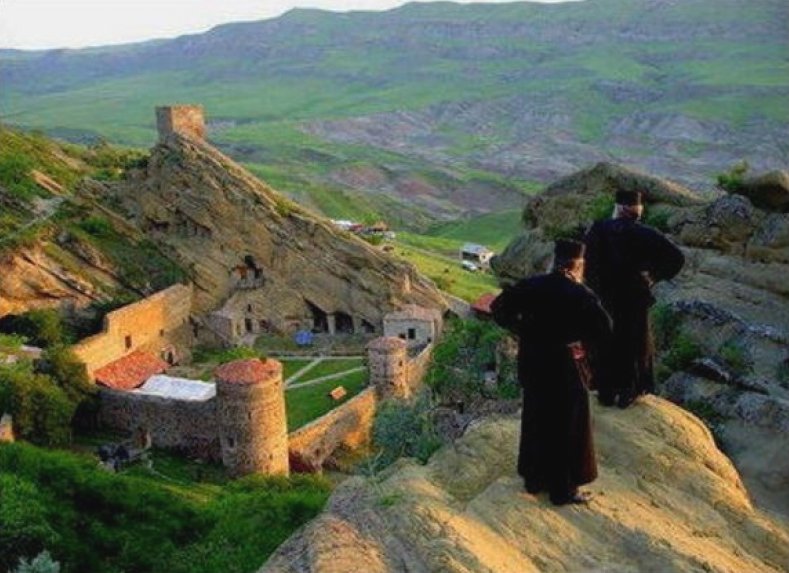(Reuters) UDABNO, Georgia, Sept 4 – Standing near an ancient monastery perched on a rocky ridge in southeast Georgia, armed border guards keep a watchful eye over tourists visiting the site, stopping those who venture too far uphill.
On the ridge’s opposite slope – where the tourists are headed – sit mountain caves with 1,000-year-old religious frescoes etched into their walls, a dozen kilometres from the village of Udabno.
But access has been restricted since late April due to a flare-up in a border dispute between Georgia and Azerbaijan. […]
Georgia and Azerbaijan set up a joint commission to demarcate the 480-km (300-mile) border between the two countries in 1996, said Kornely Kakachia, head of the Georgian Institute of Politics (GIP), a think tank based in the capital Tbilisi.
But after they agreed on almost 70% of it, progress halted in the mid-2000s, he added.
The David Gareja monastery complex, a sixth-century rock-hewn site sprawling across the barren slopes of a mountain about 60km (35 miles) southeast of Tbilisi, has represented one of the “major stumbling blocks” to the negotiations, Kakachia noted. […]
Read More © Reuters











